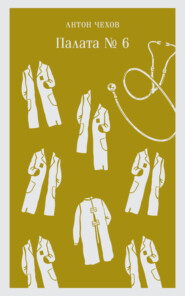По всем вопросам обращайтесь на: info@litportal.ru
(©) 2003-2024.
✖
The Schoolmaster and Other Stories
Настройки чтения
Размер шрифта
Высота строк
Поля
There was the sound of footsteps hurriedly retreating, of twigs snapping – and all was still… The surveyor had not expected such a dénouement. He first stopped the horse and then settled himself more comfortably in the cart and fell to thinking.
"He has run off.. he was scared, the fool. Well, what's to be done now? I can't go on alone because I don't know the way; besides they may think I have stolen his horse… What's to be done?"
"Klim! Klim," he cried.
"Klim," answered the echo.
At the thought that he would have to sit through the whole night in the cold and dark forest and hear nothing but the wolves, the echo, and the snorting of the scraggy mare, the surveyor began to have twinges down his spine as though it were being rasped with a cold file.
"Klimushka," he shouted. "Dear fellow! Where are you, Klimushka?"
For two hours the surveyor shouted, and it was only after he was quite husky and had resigned himself to spending the night in the forest that a faint breeze wafted the sound of a moan to him.
"Klim, is it you, dear fellow? Let us go on."
"You'll mu-ur-der me!"
"But I was joking, my dear man! I swear to God I was joking! As though I had revolvers! I told a lie because I was frightened. For goodness sake let us go on, I am freezing!"
Klim, probably reflecting that a real robber would have vanished long ago with the horse and cart, came out of the forest and went hesitatingly up to his passenger.
"Well, what were you frightened of, stupid? I.. I was joking and you were frightened. Get in!"
"God be with you, sir," Klim muttered as he clambered into the cart, "if I had known I wouldn't have taken you for a hundred roubles. I almost died of fright.."
Klim lashed at the little mare. The cart swayed. Klim lashed once more and the cart gave a lurch. After the fourth stroke of the whip when the cart moved forward, the surveyor hid his ears in his collar and sank into thought.
The road and Klim no longer seemed dangerous to him.
THE ORATOR
ONE fine morning the collegiate assessor, Kirill Ivanovitch Babilonov, who had died of the two afflictions so widely spread in our country, a bad wife and alcoholism, was being buried. As the funeral procession set off from the church to the cemetery, one of the deceased's colleagues, called Poplavsky, got into a cab and galloped off to find a friend, one Grigory Petrovitch Zapoikin, a man who though still young had acquired considerable popularity. Zapoikin, as many of my readers are aware, possesses a rare talent for impromptu speechifying at weddings, jubilees, and funerals. He can speak whenever he likes: in his sleep, on an empty stomach, dead drunk or in a high fever. His words flow smoothly and evenly, like water out of a pipe, and in abundance; there are far more moving words in his oratorical dictionary than there are beetles in any restaurant. He always speaks eloquently and at great length, so much so that on some occasions, particularly at merchants' weddings, they have to resort to assistance from the police to stop him.
"I have come for you, old man!" began Poplavsky, finding him at home. "Put on your hat and coat this minute and come along. One of our fellows is dead, we are just sending him off to the other world, so you must do a bit of palavering by way of farewell to him… You are our only hope. If it had been one of the smaller fry it would not have been worth troubling you, but you see it's the secretary.. a pillar of the office, in a sense. It's awkward for such a whopper to be buried without a speech."
"Oh, the secretary!" yawned Zapoikin. "You mean the drunken one?"
"Yes. There will be pancakes, a lunch.. you'll get your cab-fare.
Come along, dear chap. You spout out some rigmarole like a regular
Cicero at the grave and what gratitude you will earn!"
Zapoikin readily agreed. He ruffled up his hair, cast a shade of melancholy over his face, and went out into the street with Poplavsky.
"I know your secretary," he said, as he got into the cab. "A cunning rogue and a beast – the kingdom of heaven be his – such as you don't often come across."
"Come, Grisha, it is not the thing to abuse the dead."
"Of course not, aut mortuis nihil bene, but still he was a rascal."
The friends overtook the funeral procession and joined it. The coffin was borne along slowly so that before they reached the cemetery they were able three times to drop into a tavern and imbibe a little to the health of the departed.
In the cemetery came the service by the graveside. The mother-in-law, the wife, and the sister-in-law in obedience to custom shed many tears. When the coffin was being lowered into the grave the wife even shrieked "Let me go with him!" but did not follow her husband into the grave probably recollecting her pension. Waiting till everything was quiet again Zapoikin stepped forward, turned his eyes on all present, and began:
"Can I believe my eyes and ears? Is it not a terrible dream this grave, these tear-stained faces, these moans and lamentations? Alas, it is not a dream and our eyes do not deceive us! He whom we have only so lately seen, so full of courage, so youthfully fresh and pure, who so lately before our eyes like an unwearying bee bore his honey to the common hive of the welfare of the state, he who.. he is turned now to dust, to inanimate mirage. Inexorable death has laid his bony hand upon him at the time when, in spite of his bowed age, he was still full of the bloom of strength and radiant hopes. An irremediable loss! Who will fill his place for us? Good government servants we have many, but Prokofy Osipitch was unique. To the depths of his soul he was devoted to his honest duty; he did not spare his strength but worked late at night, and was disinterested, impervious to bribes… How he despised those who to the detriment of the public interest sought to corrupt him, who by the seductive goods of this life strove to draw him to betray his duty! Yes, before our eyes Prokofy Osipitch would divide his small salary between his poorer colleagues, and you have just heard yourselves the lamentations of the widows and orphans who lived upon his alms. Devoted to good works and his official duty, he gave up the joys of this life and even renounced the happiness of domestic existence; as you are aware, to the end of his days he was a bachelor. And who will replace him as a comrade? I can see now the kindly, shaven face turned to us with a gentle smile, I can hear now his soft friendly voice. Peace to thine ashes, Prokofy Osipitch! Rest, honest, noble toiler!"
Zapoikin continued while his listeners began whispering together. His speech pleased everyone and drew some tears, but a good many things in it seemed strange. In the first place they could not make out why the orator called the deceased Prokofy Osipitch when his name was Kirill Ivanovitch. In the second, everyone knew that the deceased had spent his whole life quarelling with his lawful wife, and so consequently could not be called a bachelor; in the third, he had a thick red beard and had never been known to shave, and so no one could understand why the orator spoke of his shaven face. The listeners were perplexed; they glanced at each other and shrugged their shoulders.
"Prokofy Osipitch," continued the orator, looking with an air of inspiration into the grave, "your face was plain, even hideous, you were morose and austere, but we all know that under that outer husk there beat an honest, friendly heart!"
Soon the listeners began to observe something strange in the orator himself. He gazed at one point, shifted about uneasily and began to shrug his shoulders too. All at once he ceased speaking, and gaping with astonishment, turned to Poplavsky.
"I say! he's alive," he said, staring with horror.
"Who's alive?"
"Why, Prokofy Osipitch, there he stands, by that tombstone!"
"He never died! It's Kirill Ivanovitch who's dead."
"But you told me yourself your secretary was dead."
"Kirill Ivanovitch was our secretary. You've muddled it, you queer fish. Prokofy Osipitch was our secretary before, that's true, but two years ago he was transferred to the second division as head clerk."
"How the devil is one to tell?"
"Why are you stopping? Go on, it's awkward."
Zapoikin turned to the grave, and with the same eloquence continued his interrupted speech. Prokofy Osipitch, an old clerk with a clean-shaven face, was in fact standing by a tombstone. He looked at the orator and frowned angrily.
"Well, you have put your foot into it, haven't you!" laughed his fellow-clerks as they returned from the funeral with Zapoikin. "Burying a man alive!"
"It's unpleasant, young man," grumbled Prokofy Osipitch. "Your speech may be all right for a dead man, but in reference to a living one it is nothing but sarcasm! Upon my soul what have you been saying? Disinterested, incorruptible, won't take bribes! Such things can only be said of the living in sarcasm. And no one asked you, sir, to expatiate on my face. Plain, hideous, so be it, but why exhibit my countenance in that public way! It's insulting."
MALINGERERS
MARFA PETROVNA PETCHONKIN, the General's widow, who has been practising for ten years as a homeopathic doctor, is seeing patients in her study on one of the Tuesdays in May. On the table before her lie a chest of homeopathic drugs, a book on homeopathy, and bills from a homeopathic chemist. On the wall the letters from some Petersburg homeopath, in Marfa Petrovna's opinion a very celebrated and great man, hang under glass in a gilt frame, and there also is a portrait of Father Aristark, to whom the lady owes her salvation – that is, the renunciation of pernicious allopathy and the knowledge of the truth. In the vestibule patients are sitting waiting, for the most part peasants. All but two or three of them are barefoot, as the lady has given orders that their ill-smelling boots are to be left in the yard.
Marfa Petrovna has already seen ten patients when she calls the eleventh: "Gavrila Gruzd!"
The door opens and instead of Gavrila Gruzd, Zamuhrishen, a neighbouring landowner who has sunk into poverty, a little old man with sour eyes, and with a gentleman's cap under his arm, walks into the room. He puts down his stick in the corner, goes up to the lady, and without a word drops on one knee before her.
"What are you about, Kuzma Kuzmitch?" cries the lady in horror, flushing crimson. "For goodness sake!"
"While I live I will not rise," says Zamuhrishen, bending over her hand. "Let all the world see my homage on my knees, our guardian angel, benefactress of the human race! Let them! Before the good fairy who has given me life, guided me into the path of truth, and enlightened my scepticism I am ready not merely to kneel but to pass through fire, our miraculous healer, mother of the orphan and the widowed! I have recovered. I am a new man, enchantress!"
"I.. I am very glad." mutters the lady, flushing with pleasure. "It's so pleasant to hear that.. Sit down please! Why, you were so seriously ill that Tuesday."

















